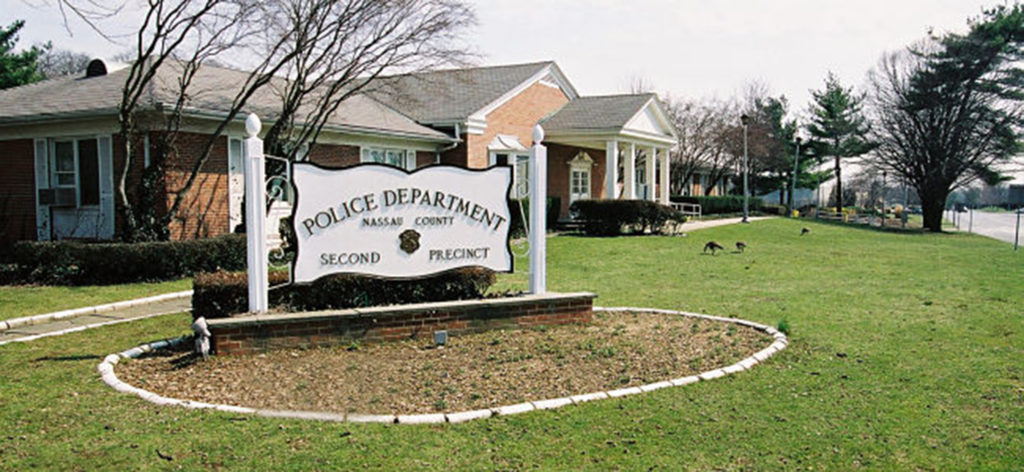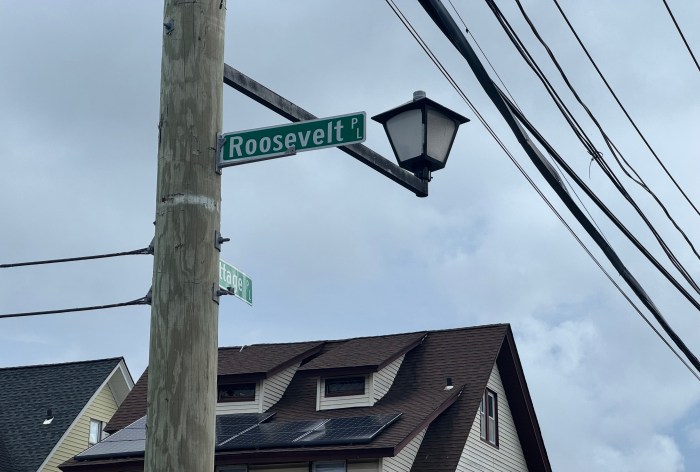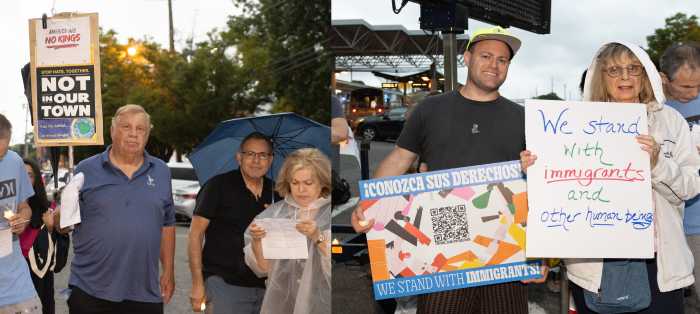Within the hamlet of Oyster Bay, instances of crime have appeared to be on the rise—at least, according to posts on social media—and members of the community wanted answers. The Oyster Bay Civic Association held a forum earlier this month to address concerns and find a solution, inviting guests Town of Oyster Bay Councilwoman Michele Johnson, TOB Public Safety Commissioner Justin McCaffrey and NCPD second precinct officer Matthew McCartin to share their knowledge and answer questions.
“Part of what we do is share what we deem to be important information with the Oyster Bay community,” said Rich LaMarca, president of the Oyster Bay Civic Association. “We present ideas and concerns of ours, and of yours, to help all of us make informed decisions on what is best for our hamlet. We also exist to provide a collective voice for the community with our public officials when appropriate.”
He said the group might want to come together in unity to rally behind an initiative the community wants to see happen, or take a stand against something they don’t want to see happen. Or, it could be to ask for assistance or guidance in developing a solution to a problem in the community—which is why the group met on March 13.
“It is very appropriate for us to come together as one voice tonight to communicate with our local officials and express our concerns and ask for their help,” said LaMarca. “Over the last couple of weeks, the Civic has been inundated with emails, and observed a ton of traffic on social media about recent break-ins, theft and potentially criminal activity in our neighborhoods.”
McCaffrey spoke about the role of the public safety officers and assured those present that they are the “eyes and ears of neighborhood” that can help deter minor incidents. The main jurisdiction of these officers—who are not armed—is the town facilities, with a focus on parks, municipal lots, train stations, parking garages, golf courses and beaches.
“We’re another set of eyes out there and work closely with the police department,” McCaffrey said.
Nassau County Second Precinct officer Matt McCartin, who is with the Problem-Oriented Policing (POP) unit, tried to dispel some of the social media anxiety; he said that he’s seen a lot of posts on social media and verified that in many of the cases, the victim never reported the crime, so an investigation was never opened. He said there had been only eight crimes reported between Dec. 1, 2017 through Feb. 25. One of those was a pedestrian robbery in Teddy Roosevelt Park, which is currently under investigation, and others involved auto theft or theft from vehicles, including two stolen cars. In all instances, he said, the doors of the vehicles were unlocked. In the case of one stolen car, the keys were in the center console.
“We need the community to take a few extra minutes and hit that button on your car,” he said. “It’s really critical.”
One resident affirmed what had been discussed: he said his truck had been “gotten into” twice, and both times he had left it unlocked.
“I didn’t even think about reporting it,” he said. “I guess this is a good message to everyone.”
“We certainly want to know about that,” replied McCartin. “There could be a crime pattern and maybe we could find some evidence.”
He stressed the importance of calling the precinct and not just circulating it on social media. He said even if people aren’t sure whether they should call, they can always call either 911 or the precinct to have a record of the incident at 516-573-6200.
Someone asked whether they had increased patrols around the schools. Prior to the national student walkout, McCartin said they had been in communication with the districts to find out their plans and patrolled intensively in the areas allowed to walk out.
Another resident asked how the residents can learn about what’s going on in their neighborhoods aside from reading about it “in the Sunday paper.”
Legislator Josh Lafazan said police commissioner Patrick Ryder is establishing a community council for each legislator to help filter information to the public about crime and other issues in order to better reach the community.
The message driven home was to report suspicious activity and keep doors locked.
“No community is immune to crime,” LaMarca said.
What did you think of this article? Share your thoughts with me by email at: jnossa@antonmediagroup.com


































